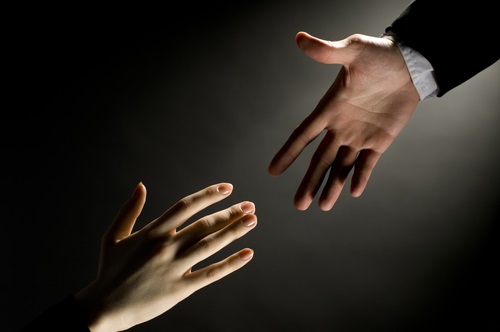Mahatma Gandhi said, “The weak can never forgive. Forgiveness is the attribute of the strong.”
That’s how HR professional Chris Fields opens his post on Forgiveness in the Workplace at eSkill blog. He points to examples of when forgiveness can heal or when lack of forgiveness can cause more damage. He also shares a personal experience from his own professional life when he had to put the power of forgiveness to work.
His excellent essay sent us in search of other discussions of forgiveness in the workplace:
- David K. Williams talks about how forgiveness is a value that is engrained in his workplace:
Forgiveness: The Least Understood Leadership Trait In The Workplace - Chief Happiness Officer Alexander Kjerulf suggests that we need to teach leaders how to forgive and how to apologize. Create a culture of forgiveness in the workplace
- Michael Stone’s in-depth paper on Forgiveness in the workplace (PDF) makes the case that, “… it makes good business sense to practice the art of forgiveness. True forgiveness supports the retention of valued employees, allows for greater creativity and innovation, leads to increased profitability, and generates greater flexibility in adapting to changing market conditions.”
Letting go of hurts, grudges, and slights is at the root of many of the problems that our EAP counselors address. By virtue of an excerpt from one of our recent newsletters for Members, we’d like to weigh in on the matter of forgiveness, too:
Forgiveness is the greatest gift you can give to others. It’s also the greatest, most powerful gift you can give yourself.
Forgiveness is not condoning or forgetting about wrong behavior. It doesn’t guarantee that pain will go away. Rather, it is letting go of negative and potentially toxic feelings that keep us stuck: anger, vengefulness, bitterness and resentment.
Forgiveness is compared to healing, to being relieved of a weight, or gaining a sense of peace. Radio host Bernard Meltzer explains the effects: “When you forgive, you in no way change the past – but you sure do change the future.”
Forgiving can change the course of history. After 27 years in prison, Nelson Mandela let go of anger at his tormenters to unite all the people of South Africa. He said that, “Resentment is like drinking poison and then hoping it will kill your enemies.”
Most of us won’t be called upon to forgive our jailors, but we may have terribly painful life events that keep us trapped. Sometimes it can be easier to forgive a stranger than a loved one. We have few expectations of a stranger, but we feel a trust betrayed with a relative or friend who hurts us.
Forgiveness is not a once-and-done thing, it is a process. Like a muscle, we have to exercise it to strengthen it. Here are some tips to start:
- Make it a value in your life. Hold forgiveness as a goal and work up to it in incremental stages.
- Start with the small things. Let go of small slights and assume the best of others. Practice a small forgiveness every day and work up to the big things.
- Forgive yourself. When we honestly face our own weaknesses and imperfections, it can help us develop tolerance for others.
- Just do it. Make the call, send the email, extend the hand.

